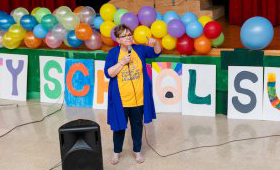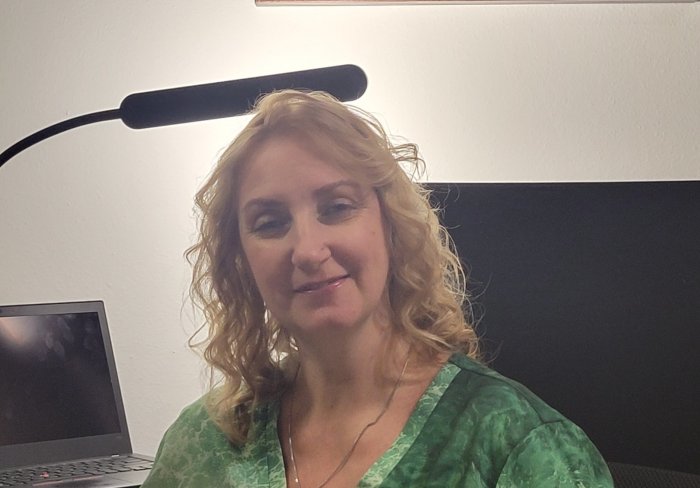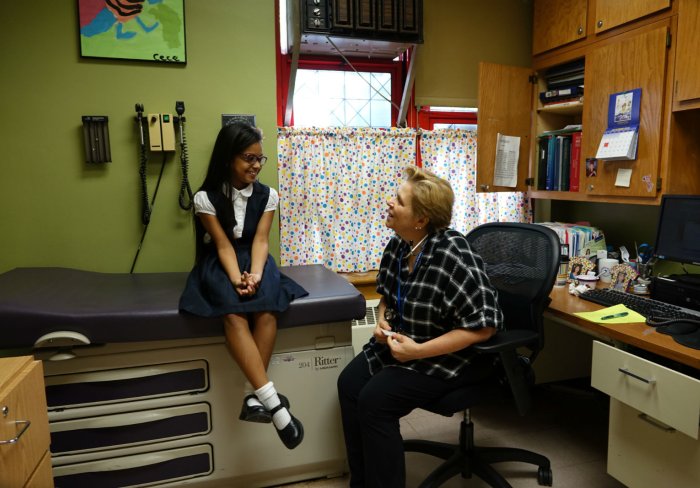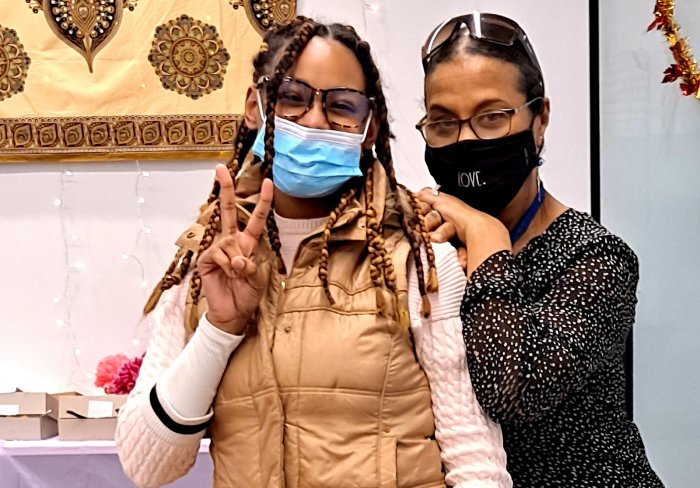Johnelyn Cadang spends her days at Children’s Aid advising staff how to improve our programs and services through data.
But in February 2022, she was called to use her skills for something completely different.
In addition to being a performance analyst at Children’s Aid, Johnelyn is also a member of the Connecticut Army National Guard. Originally from Florida, she became a member of the National Guard there in 2014.
She enjoyed her experience and the benefits that came with being a member. In one of her first missions, Johnelyn spent nine months in Djibouti, an Eastern African nation, managing a clinic of 30 army medics. Being a part of the National Guard also paid for her college education.
“At the time, they were offering a lot of school benefits, and coming from a first-generation immigrant family, my parents couldn’t afford to pay for school,” she said. “The national guard has provided me the opportunity to get both my bachelors and masters debt free.”
Johnelyn received her bachelor’s degree in health science with a concentration in community health. In 2019, she completed her master’s degree in public health with a concentration in epidemiology and global communicable diseases.
One year later, the topics she studied in class became a reality when coronavirus infections began skyrocketing in the United States. Hospitals were overrun with patients and medical staff were overworked.
Two years after the first infections were reported, Johnelyn received a call from the National Guard. They were looking for medical service corps officers to provide relief for medical staff at Yale New Haven Hospital.
Johnelyn, who lives in New Jersey, had one week to pack her bags and alert her Children’s Aid team about her mission.
“I know it’s not so easy to have one team member leave and others have to fill in the gap,” she said. “I’m truly grateful that my colleagues and supervisor, Susan Fojas, has been very supportive of me in this process.”
As a liaison officer, Johnelyn worked to make sure the Air Force medical unit was properly on boarded and seamlessly integrated with the rest of the hospital staff. The 20 officers flew from a base in Nevada and began working at the hospital right away.
In addition to getting acclimated to a new environment with considerably colder weather, Johnelyn joked, there were cultural differences to contend with.
“We’re accustomed to being deployed overseas and helping in military hospitals,” she said. “Interacting with civilian counterparts took us some time to get used to. I was making sure that I was plugging in our medical unit in ways that best serve the hospital.”
Along with the air force medical unit, Johnelyn collaborated with the emergency planning department, the nursing department, physicians department, and respiratory therapists. Personnel from the Federal Emergency Management Agency were also stationed at the hospital.
In 40 days, her team offered more than 3,000 clinical hours and served more than 2,000 patients.
The most rewarding part of her deployment was the reaction from the hospital staff.
“We offered a lot of reprieve for them so they can take extra days off and take a break before their shift,” she said. “The past two years have been really rigorous for them. They were super grateful that we were there to offer their staff relief. We felt it, we felt a lot of gratitude from them.”







